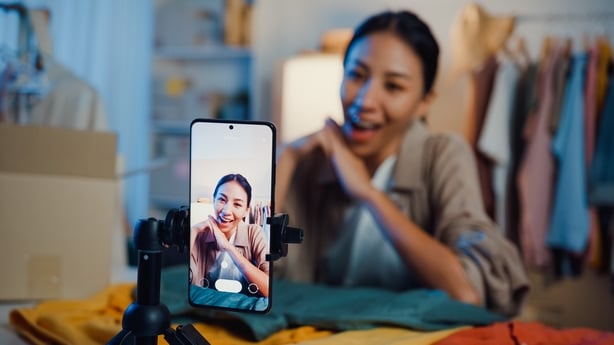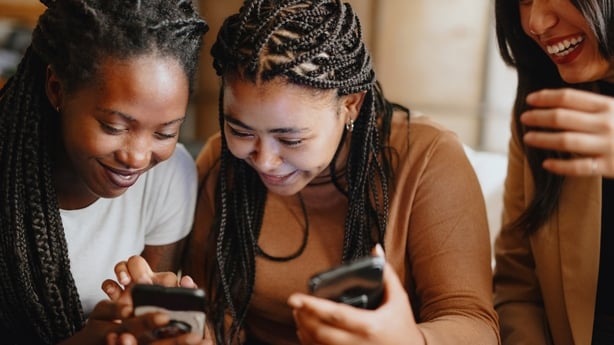After years of shopping online through – and often because of – social media apps, a tide has turned when it comes to how we think about what we're buying, and why.
Whether it's splurging on a "spring haul" or buying a new red lipstick, even though you already have nine different shades, many of us have been influenced by ads and videos on social media. However, many social media users have grown tired of the constant consumerism online.
Broadcaster and environmental activist, Fionnuala Moran joined Today With Claire Byrne to discuss why "de-influencing" has become a soaring trend online.

The term has been around since 2020, Moran explained, having been started by TikTok user Maddie B. Wells in a video where she spoke about the amount of products she saw being returned while working in retail.
The term started trending recently, however, following "lashgate" when a popular beauty influencer posted a video of herself trying a mascara, which prompted viewers to accuse her of using false eyelashes without explicitly stating so.
"Since then, it's gone in a two-pronged way. One part of it is really good, and it's people addressing hyper consumption and how we all present ourselves and our homes and every aspect of our lives need to be a reflection of ourself now. Even Dermot Bannon joked about it in the most recent series of Room to Improve, he's like, 'since when does your kitchen counter have to say something about your personality?'"
The other side of it, however, is simply more product promotion.
Influencers are a force to be reckoned with in all areas of business. In 2022, the global influencer market was predicted to be worth $15 billion, and is thought to be on track to reach $22.2 billion by 2025.
Moran also noted how what they do works: surveys show that 37% of us are likely to make a purchase on Facebook and TikTok this year, while 35% of us will do the same on Instagram. What you buy will depend on what you're interested in.
While we've always had some form of influencer, from Jackie O to Marilyn Monroe, "we've never had this level of access to people in whatever mood, at any time to be able to sell to them", Moran said.

As to whether the de-influencer movement is likely to counter act the influencer machine, Moran isn't too hopeful. "I don't have huge hopes for this being the end of capitalism and consumerism and everything else that might be pushing the climate crisis down into a darker place", she said.
"But it is giving a nice online space now for people to question, do I need to buy all these things I'm being told to buy? To look past the hype, to look past the virality and go, OK, maybe there's an online space here when I can be creating more creative content or I could be doing different things."
Making de-influencing commercially viable is one way to foster the community, and Moran says that can be done through community events and gifting to creators for the content you like.
"It's about having a really pro-active think about what you want to be influencing people to do", Moran said.
To listen to the full interview, click above.

